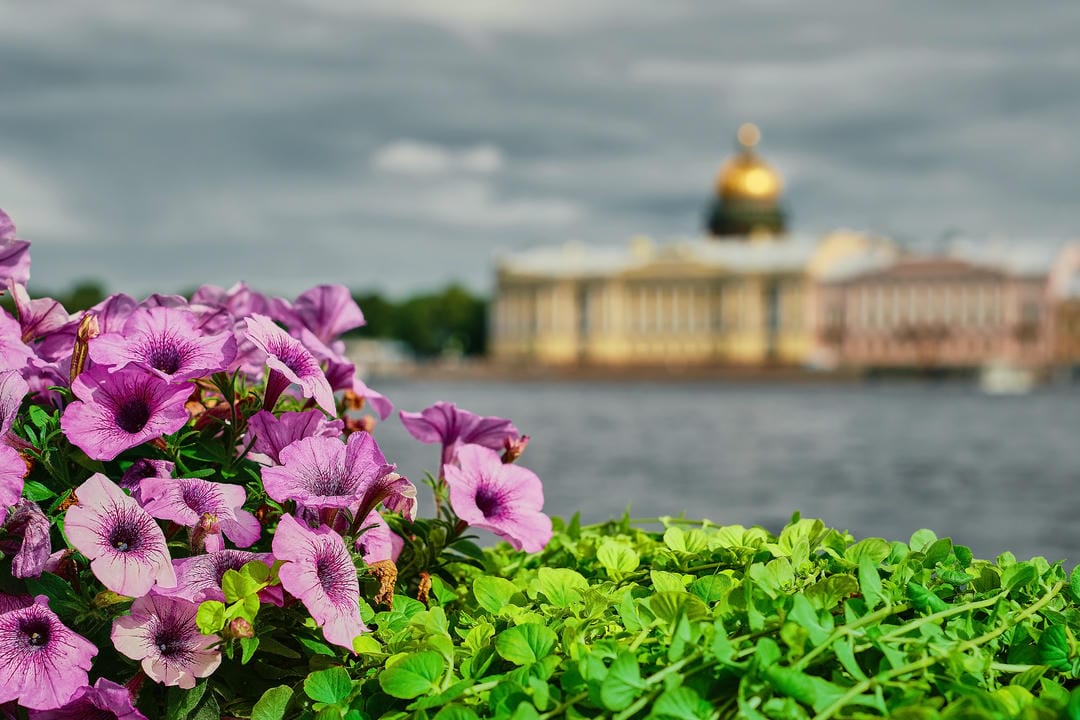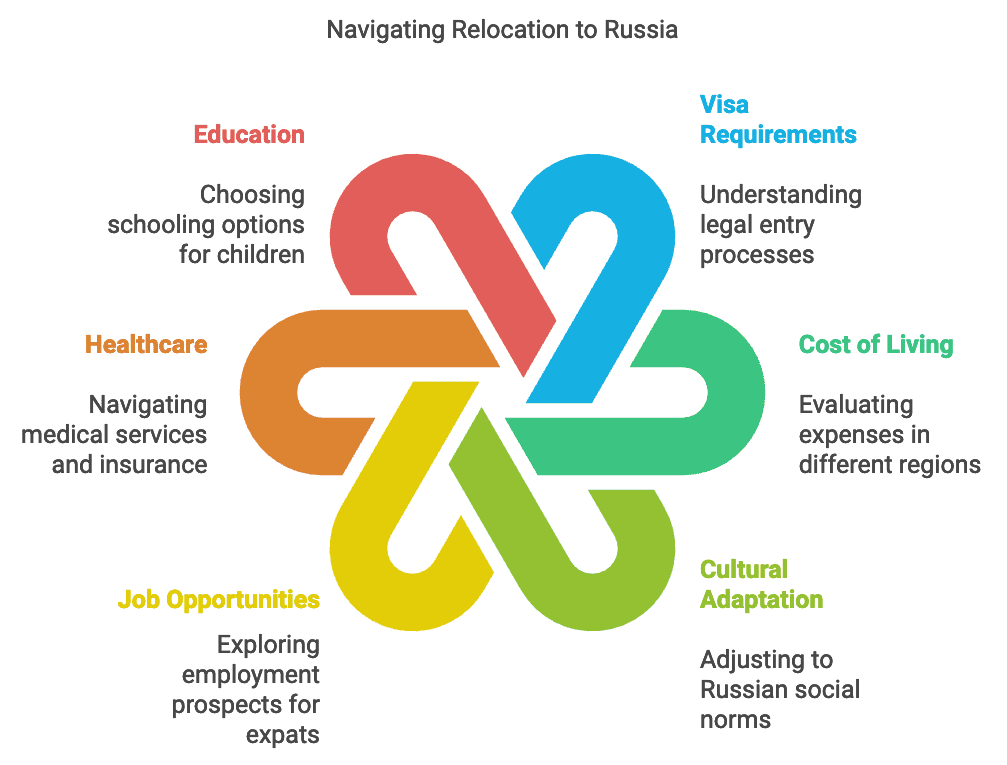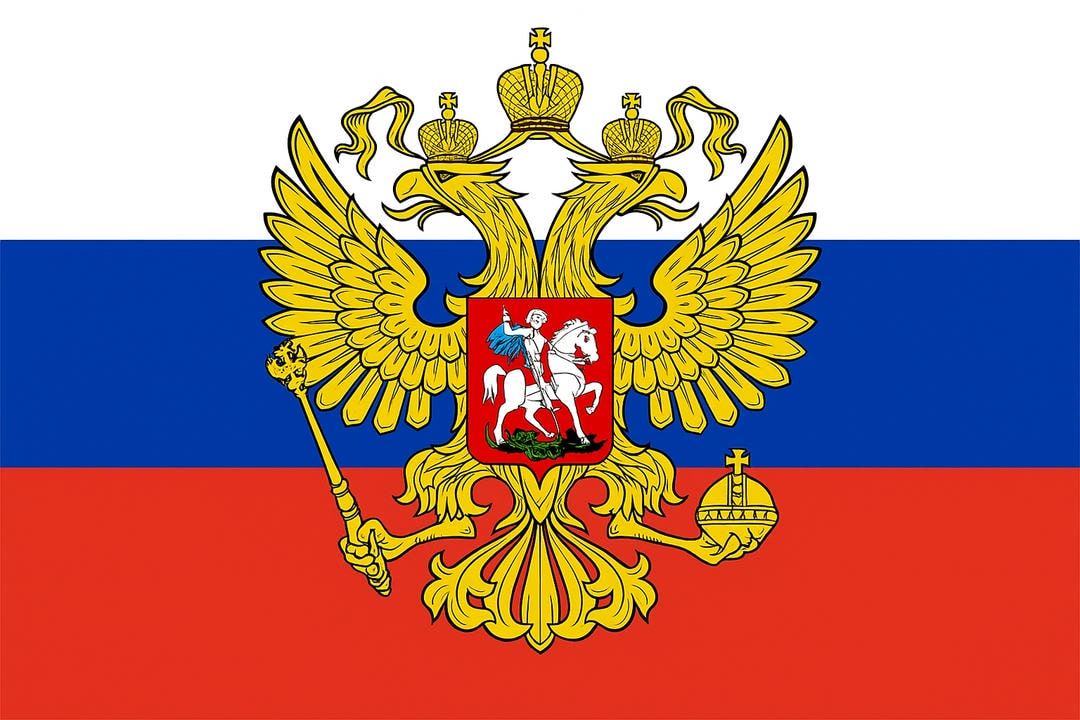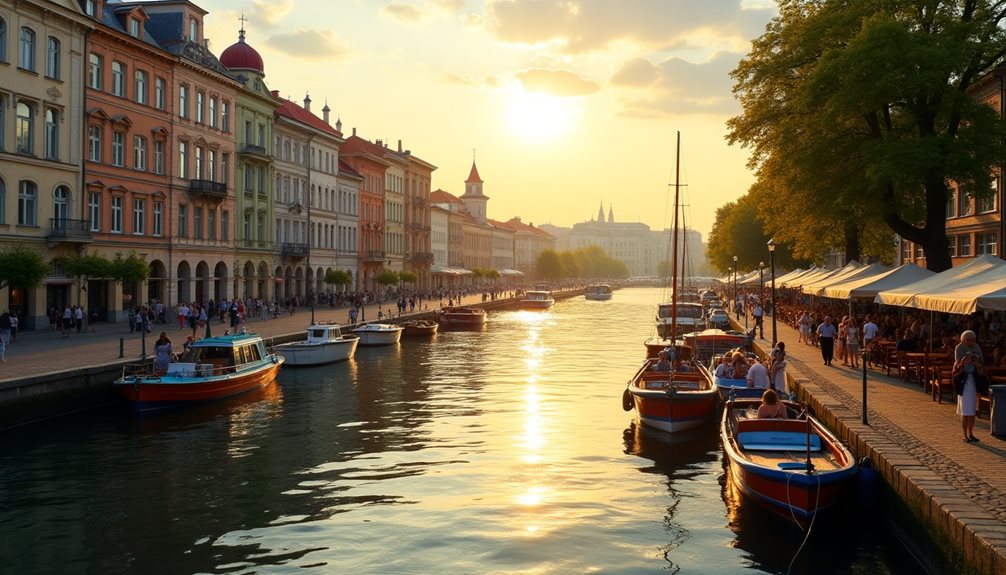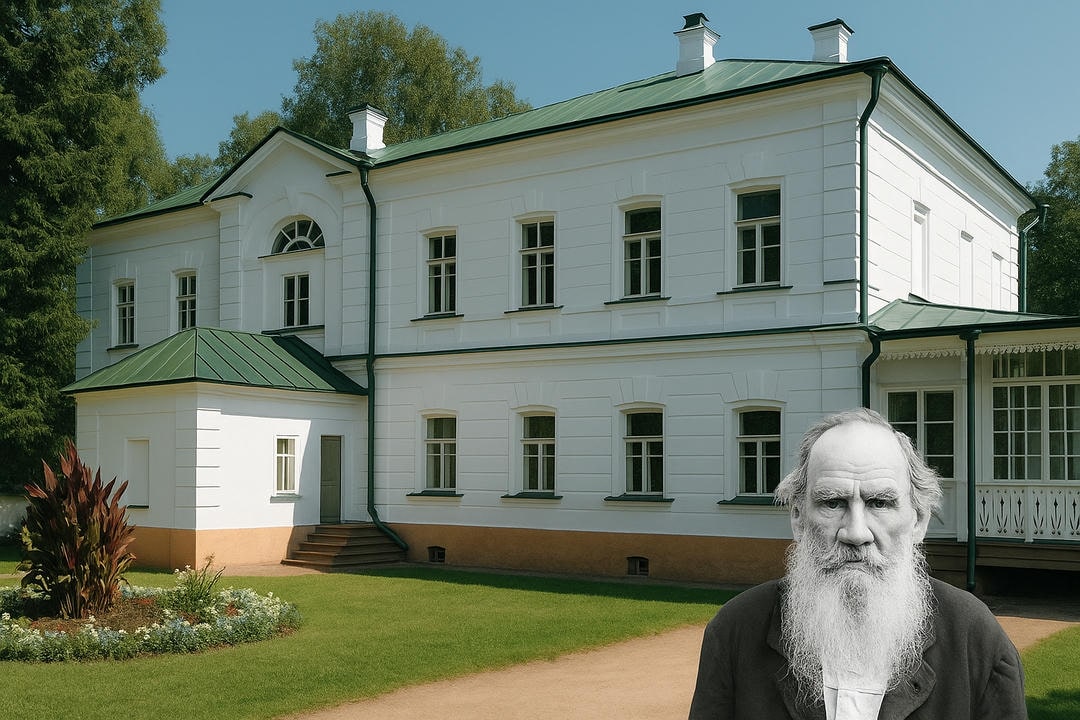Starting a journey to Russia requires more than just packing your bags; it involves a thorough understanding of the country’s unique landscape. From maneuvering through the complex visa regulations to adapting to cultural nuances, there are several critical elements to take into account. The vibrant cities of Moscow and St. Petersburg may entice with their urban allure, yet they come with their own set of fiscal challenges. Furthermore, the importance of language proficiency cannot be overstated, especially when seeking employment in key sectors. As you prepare for this change, what other essential aspects might influence your experience in Russia?
In recent years, more individuals are considering relocating to Russia, attracted by its rich cultural heritage and unique opportunities. As this interest grows, understanding key factors like visa requirements, cost of living, and cultural adaptation becomes essential.
Evaluating healthcare, education, and community support systems is crucial for successful integration into Russian society. Russia’s vast landscape, with its vibrant cultural festivals and historical landmarks, captivates those seeking a distinctive experience. The urban lifestyle varies from the bustling streets of Moscow and the cultural vibrancy of St. Petersburg to the charm of smaller cities, complemented by a diverse culinary scene that ranges from traditional dishes to modern innovations.
Climate considerations also play a significant role, as Russia’s geography offers varied weather conditions—from snowy winters to warm summers—each presenting unique lifestyles. For those who value freedom and adventure, Russia’s blend of modernity and tradition provides an enticing backdrop for new beginnings.
Relocating involves navigating complex practicalities and legalities. A solid understanding of visa processes is vital for legal residency and employment. Familiarity with the cost of living is important as it varies significantly across regions; major cities like Moscow and St. Petersburg have higher expenses compared to smaller towns.
Knowledge of local transportation can ease daily commutes, enhancing the experience of exploring Russian cuisine and culture. Cultural adaptation is an ongoing journey enriched by engaging with local communities, fostering connections that are essential for settling in.
Additionally, careful consideration of Russia’s healthcare and education systems ensures expatriates receive quality services. With this knowledge, individuals can confidently embrace their new adventure in this diverse and dynamic nation.
Cost of Living and Employment
When contemplating a move to Russia, it is crucial to assess both the cost of living and the employment landscape to make informed decisions.The cost of living in major Russian cities varies significantly compared to typical U.S. urban areas, with some regions offering potential savings while others may have higher expenses. For instance, housing costs can be lower in Moscow compared to cities like New York or San Francisco, especially in neighborhoods that provide luxurious amenities. However, navigating the rental market can be complex.
Job Opportunities for Expats
Russia offers unique job prospects for expatriates, particularly in sectors such as technology and education, where foreign expertise is highly sought after. The average salary for expats tends to be significantly higher than that of local workers, which can offset living costs.
Housing and Transportation
Housing prices fluctuate depending on the city and neighborhood. While Moscow and Saint Petersburg typically have higher rental rates, more affordable options exist outside these urban centers. Transportation in Russia is generally efficient and inexpensive, making public transit a viable alternative to car ownership, especially in larger cities.
Grocery and Entertainment Costs
Grocery prices are often lower than those in many Western countries, particularly when shopping at local markets. However, imported goods can be more expensive, so adapting to local products can help manage food expenses.
Entertainment costs vary widely; while Moscow’s cultural scene may be pricier, other cities offer numerous affordable options for leisure activities.
In summary, relocating to Russia requires a comprehensive understanding of living expenses and job opportunities. Conducting a cost comparison with your current location will reveal important differences that could influence your decision to move.
Job Opportunities for Expats
Exploring job opportunities for expats in Russia reveals a dynamic and diverse employment landscape, shaped by the country’s evolving economic environment. Remote work has gained traction, offering flexibility and a chance to engage with Russian businesses without the need for immediate relocation.
However, maneuvering through the job market can be challenging due to language barriers. Proficiency in Russian is often a prerequisite, although roles in multinational companies or startups may require only English, offering a gateway for those keen to immerse themselves in the culture.
Job hunting in Russia benefits considerably from effective networking. Building connections through professional events, online platforms, and expat communities can open doors to job opportunities that may not be advertised publicly. This approach not only aids in finding employment but also enriches cultural immersion, providing insights into local customs and business practices.
Russia’s job market for expats offers intriguing opportunities across several industries, particularly for those willing to embrace the unique challenges and rewards of working in a new cultural context.
The Tech Industry stands out as a dynamic frontier, driven by the country’s ambition to innovate and integrate cutting-edge technology within its economy. Expats with expertise in software development, cybersecurity, and IT project management will find an array of positions that value their international perspective.
Meanwhile, the Energy Sector continues to be a cornerstone of Russia’s economic landscape. With its vast natural resources, the country seeks skilled professionals to contribute to the development and management of energy projects, including oil, gas, and renewable energy initiatives.
Engineering Fields are equally essential, as Russia advances its infrastructure and industrial capabilities. Engineers across various disciplines can play a pivotal role in these expansive projects.
In addition, Education Services present opportunities for those passionate about teaching, particularly in English language instruction, where demand remains high.
Hospitality Management also attracts expats, with Russia’s growing tourism industry requiring innovative minds to enhance guest experiences in hotels and resorts.
Lastly, Language Teaching remains a steadfast option for expatriates, especially native English speakers. The thirst for language proficiency among Russians guarantees a steady demand for qualified foreign educators.
Collectively, these sectors offer not just jobs, but gateways to experiencing life in Russia.
Cultural Adaptation
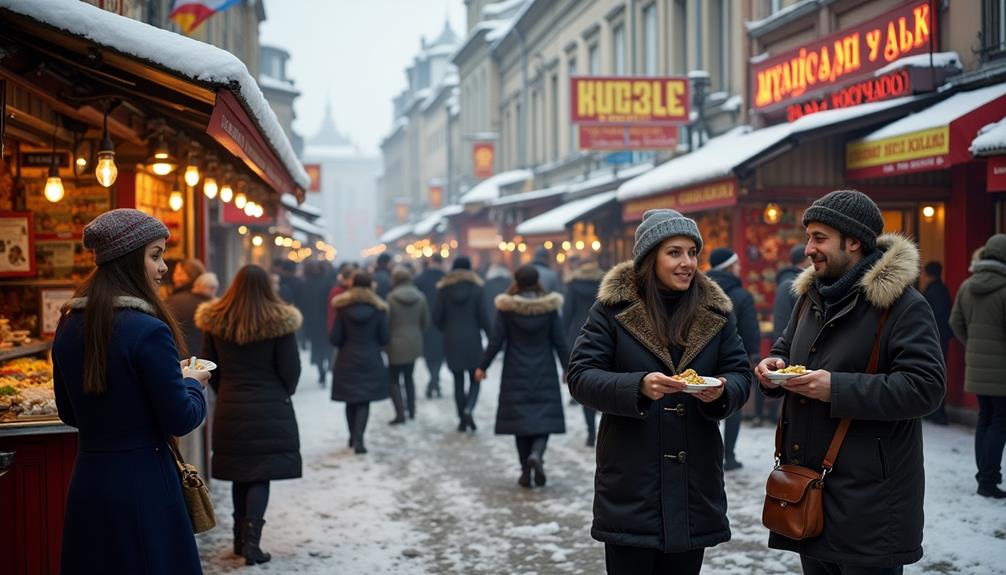
Adapting to life in Russia necessitates an understanding of cultural differences, particularly the key norms and practices that diverge from American customs. For instance, Russians place a strong emphasis on hospitality and formality in social interactions.
Expats often encounter challenges when navigating these cultural nuances, as well as bureaucratic processes and language barriers that complicate daily life. Proficiency in the Russian language is crucial, not only for effective communication but also for deeper integration into the community, enhancing personal and professional experiences.
Understanding Russian customs, which are deeply rooted in tradition, offers a rich cultural landscape ripe for exploration. Social etiquette prioritizes formal interactions; a firm handshake and direct eye contact are customary, reflecting sincerity and respect. Family dynamics are also essential, as family plays a central role in Russian society. Large family gatherings often center around meals that emphasize hospitality and generosity, treating guests with great honor.
Communication styles in Russia tend to be direct and straightforward, reflecting a cultural value placed on honesty and transparency. Active listening and clear expression are vital while respecting the nuances of Russian communication. This directness may initially seem intense but is indicative of a culture that values authenticity.
Embracing these cultural differences fosters successful integration and enriches personal experiences. By approaching new customs with an open mind, one can navigate the dynamic Russian social landscape confidently, leading to meaningful connections and a deeper appreciation of this vibrant culture.
Key Cultural Norms and Practices
Navigating Russia’s cultural landscape reveals significant differences from American customs, requiring thoughtful adaptation. Understanding these distinctions is essential for smooth interactions.
Russian etiquette emphasizes formalities and respect for hierarchy, contrasting with the more casual American approach. Communication typically values directness and sincerity, often lacking the small talk common in American conversations. This straightforwardness may come across as bluntness but reflects a cultural appreciation for honesty.
Social gatherings often involve close-knit circles that can last for hours; therefore, patience and attentiveness are important. Unlike the American custom of gift-giving as a mere token gesture, in Russia it carries deeper significance and is often expected when visiting someone’s home. Thoughtful gifts are appreciated, and reciprocation is common.
Personal space also differs; Russians may stand closer during conversations, which can feel intrusive to those accustomed to American norms. Adapting to these cultural nuances enables meaningful engagement within Russian society.
Common Challenges for Expats
While moving to a new country always presents unique challenges, adjusting to life in Russia can be particularly complex for expats due to distinct cultural dynamics.
Steering through the cultural landscape of Russia can prove intimidating for newcomers, as they are often confronted with a myriad of differences in social norms and traditions.
One of the most intimidating obstacles is maneuvering language barriers, which can create significant hurdles in everyday interactions. Without proficiency in Russian, engaging in simple tasks such as shopping or asking for directions can become challenging, potentially leading to cultural misunderstandings. However, immersing yourself in the language is one of the most effective ways to overcome these barriers. Engaging in conversations, listening to local media, and participating in cultural activities allow you to practice and absorb the language organically.
Additionally, bureaucratic challenges abound, as Russia’s complex administrative procedures can be difficult to decipher. Newcomers may find themselves entangled in a web of paperwork, which often requires multiple visits to government offices, testing patience and resilience.
Housing difficulties also present a formidable challenge. Finding suitable accommodation can be fraught with complexities, from understanding rental agreements to negotiating terms with landlords who may not speak English. This is compounded by the need to adhere to unfamiliar local customs and regulations.
Transportation issues further complicate the experience, as Russia’s vast geography and intricate public transport systems require time to master. Adapting to these systems without local guidance can feel overwhelming, yet it is essential for mobility and integration.
Successfully overcoming these obstacles enables a richer, more fulfilling experience in Russia.
Healthcare
Maneuvering through the healthcare system in Russia is an essential consideration for anyone planning to move to the country. Understanding healthcare accessibility is vital, as it varies greatly between urban and rural areas. In cities like Moscow and St. Petersburg, healthcare facilities are more advanced and plentiful, providing a range of services.
However, in more remote regions, options may be limited, and the quality of care can differ.
Securing medical insurance is a key step for newcomers, as it guarantees access to both public and private healthcare facilities. While the state healthcare system is available to residents, many expats prefer private healthcare for its perceived higher standards and shorter wait times.
It’s important to research and choose a policy that meets personal needs, covering both routine care and emergency services.
Russia’s healthcare system emphasizes wellness practices, with a growing focus on preventive medicine and lifestyle adjustments. Healthcare professionals in Russia are generally well-trained, but language barriers can pose challenges for non-Russian speakers.
Russia offers a dual system, with public healthcare available to residents and expats who hold the necessary documentation. While this option can be cost-effective, its accessibility and efficiency may vary greatly across regions, often influenced by urban versus rural settings. This discrepancy can impact the level of care received, prompting many expats to explore alternative solutions.
For those seeking more extensive and immediate care, private insurance is a popular path. It often grants access to expat clinics, where healthcare professionals are accustomed to serving international patients. These clinics typically provide services in multiple languages and maintain a focus on patient-centered care, offering an appealing choice for those valuing freedom in healthcare decisions.
In cases of urgent medical needs, emergency services are widely available, but expats should be aware of potential language barriers and varying response times.
Understanding the scope of services and preparing for potential scenarios can greatly enhance healthcare accessibility. Charting these options allows expats to secure a healthcare arrangement that aligns with their personal values and needs.
Private Insurance versus Public Healthcare
Maneuvering the intricacies of healthcare options is a fundamental aspect of settling in Russia as an expat, and the choice between private insurance and public healthcare is a pivotal consideration.
Russia’s public healthcare system offers universal access, but understanding the coverage differences compared to private insurance is essential. Public healthcare, funded by the mandatory health insurance program, provides basic medical services at little to no cost. However, expats may encounter language barriers, longer waiting times, and variable quality of care in public facilities.
Conversely, private insurance offers a spectrum of expat options, guaranteeing flexibility and often more personalized care. Private healthcare providers typically boast shorter wait times, English-speaking staff, and superior amenities.
Nonetheless, these benefits come at a price. Cost comparisons reveal that private insurance premiums can be considerably higher than the expenses associated with public healthcare. Evaluating your healthcare needs and financial situation is vital in making an informed decision.
For those desiring autonomy and quality, private insurance might be the preferred route, offering peace of mind and enhanced service. In contrast, those comfortable maneuvering the local system may find public healthcare sufficient.
Ultimately, choosing the right path guarantees a smoother change into Russian life.
Educational Options for Children
Steering through the educational landscape in Russia is an essential concern for expat families, as it profoundly impacts their children’s integration and development. Selecting the right educational path involves understanding the balance between international schools and local education options.
International schools offer an environment that often mirrors Western educational systems, providing continuity for children accustomed to such settings. These institutions typically include a rich array of extracurricular activities, enabling students to explore interests beyond the standard curriculum.
Conversely, local education can provide a unique opportunity for language immersion, fostering quicker adaptation to Russian culture and language. This option can be particularly beneficial for younger children, who may acquire language skills more rapidly.
Understanding the types of schools available in Russia is pivotal for expatriate families when making educational choices for their children. Russia offers a diverse educational landscape with international, private, and public schools, each providing unique curricula and experiences.
International school options are appealing for those seeking a globally recognized curriculum, such as the International Baccalaureate or British A-levels, often delivered in English. These schools emphasize a multicultural environment, offering a range of extracurricular activities that foster global citizenship.
Private schools in Russia present a distinct alternative, with curricula tailored to specific educational philosophies or religious beliefs. They often provide smaller class sizes, personalized instruction, and a broad spectrum of extracurricular activities, cultivating a holistic development approach. Admission processes in private schools can be competitive, requiring assessments or interviews.
Public schools, funded by the government, differ considerably with a curriculum primarily focused on the Russian educational standard. Classes are conducted in Russian, and students may experience a more standardized approach to learning.
However, public schools offer the advantage of full cultural immersion, which can be beneficial for language acquisition and understanding local customs. Understanding these options empowers families to make informed educational decisions that align with their values and aspirations.
Community and Support
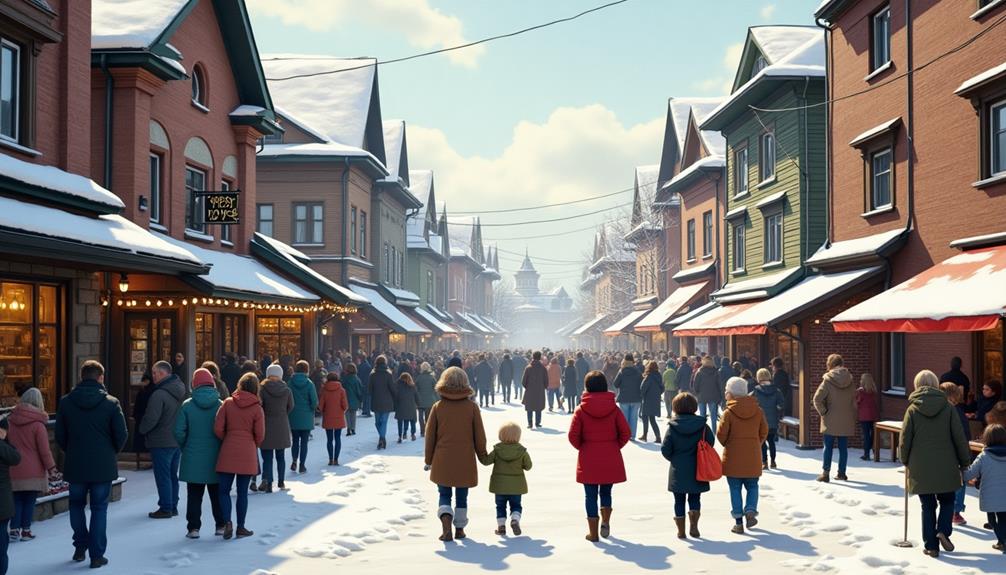
Establishing a strong community and support network is essential for those considering a move to Russia, as it can greatly ease the shift into a new cultural and social environment.
Engaging with expat communities and identifying organizations that specialize in assisting newcomers can provide valuable insights and resources to navigate the complexities of Russian life.
However, it is equally important to conduct thorough research to guarantee you are well-prepared for this major change, empowering you to make informed decisions and seamlessly integrate into your new surroundings.
Expat Communities
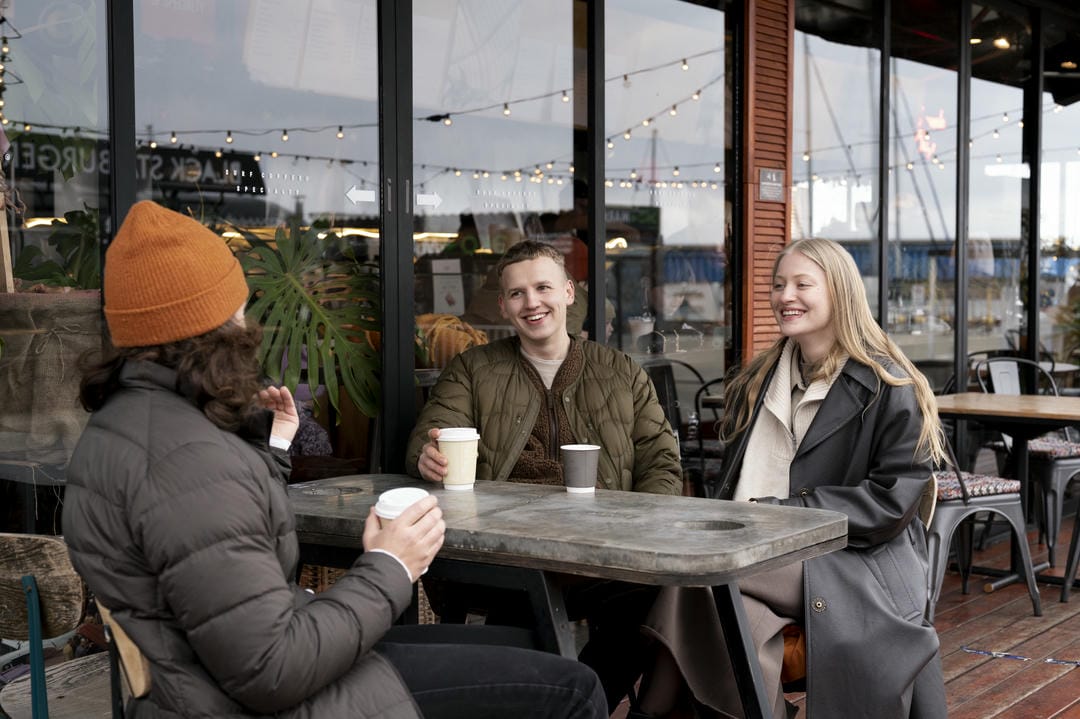
For those starting on a journey to Russia, integrating into the local culture can be both rewarding and challenging, making expat communities an invaluable resource.
These networks offer a sense of belonging and a platform for expat networking, where individuals can connect with others who share similar experiences. Engaging in cultural exchanges is an essential aspect of these communities, enabling newcomers to immerse themselves in Russian traditions while sharing their own cultural backgrounds.
Local meetups play a significant role in fostering these connections, providing opportunities to socialize and build lasting friendships. Whether it’s gathering for a casual coffee, attending a cultural event, or participating in outdoor activities, these events create a space for expatriates to feel at home.
Language clubs are another excellent avenue for integration, offering a chance to improve Russian language skills while meeting both locals and fellow expats.
Social media platforms further enhance the sense of community, offering instant access to information and support. Through online groups and forums, individuals can share tips, seek advice, and stay updated on social events.
Embracing these resources allows expats in Russia to navigate their new environment with confidence and a sense of freedom.
Seek Expert Advice
Steering through the complexities of relocating to Russia is made considerably easier with the assistance of various organizations and networks dedicated to supporting expats, both culturally and legally.
These expat networks serve as invaluable resources, offering a lifeline to those new to the Russian landscape. By engaging with these networks, newcomers can access a wealth of information about local customs, lifestyle adjustments, and practical tips for integrating into Russian society.
Social clubs play a pivotal role in fostering a sense of community among expats. These clubs often organize events centered around cultural exchange, allowing individuals to immerse themselves in Russian traditions while sharing their own cultural backgrounds.
This mutual exchange enriches the expat experience and cultivates a deeper understanding of the host country.
Language support is another critical aspect provided by these networks. Mastering the Russian language can be intimidating, but through language courses and conversational meet-ups, expats can build confidence and proficiency, enhancing their ability to navigate daily life.
Furthermore, many relocation services offer tailored assistance, ensuring a smooth shift by addressing housing, legal, and administrative requirements.
These thorough support systems empower expats to embrace their new environment with autonomy and ease, freeing the opportunity to thrive in Russia.
Do Your Own Research and Create a Plan
While engaging with expat networks provides foundational support for newcomers, conducting your own research is equally important in the process of acclimating to life in Russia. Delving into the country’s rich tapestry of cultural immersion can offer invaluable insights, allowing you to navigate your new environment with greater confidence and independence.
By exploring local cuisine, you can connect with Russia’s culinary traditions, discovering flavors that reveal the heart of its diverse regions.
Understanding public transportation is essential for maximizing your freedom of movement, ensuring you can explore bustling cities and quaint towns alike. Researching the intricacies of the metro, buses, and trains will enable you to move seamlessly through urban landscapes, enhancing your sense of autonomy.
Historical sites, rich with stories of the past, provide a deeper appreciation of Russia’s vast history and heritage, offering context to your surroundings and fostering a sense of connection.
Language classes are another vital element to take into account. Mastering even a few phrases in Russian can transform your interactions, opening doors to meaningful exchanges and friendships.
Starting on the journey to a new country, such as Russia, requires more than just a suitcase full of belongings; it necessitates a well-equipped plan supported by robust community networks and resources. A move of this magnitude demands thorough research and preparation to guarantee a seamless change.
Delving into the historical context of Russia provides valuable insights into your understanding and appreciation of local customs.
Engaging in cultural immersion is pivotal, offering a profound connection with the intricacies of Russian life. Joining language exchange programs can notably aid in breaking down linguistic barriers, facilitating smoother social integration and fostering meaningful relationships.
By participating in such exchanges, you not only learn the language but also gain firsthand knowledge of societal norms and practices.
Building a network of support within local communities is essential. This network becomes your anchor, offering guidance and assistance in traversing daily life challenges.
It is through these connections that you truly experience the freedom to explore and adapt. By prioritizing research and preparation, you empower yourself to embrace your new life in Russia with confidence and clarity, guaranteeing a rewarding experience.

